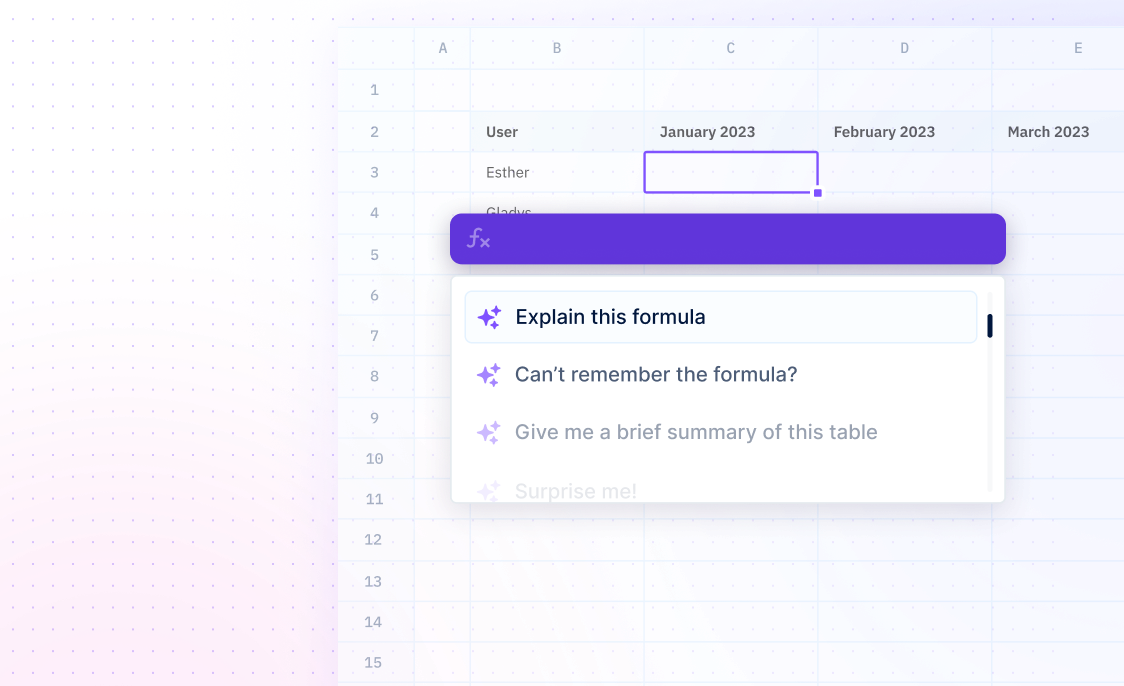
IFS
Formulas / IFSEvaluates multiple conditions and returns the first result that is TRUE
=IFS(logical_test1, value_if_true1, [logical_test2, value_if_true2], [logical_test3, value_if_true3],…)
- logical_test1 - a condition that returns TRUE or FALSE
- value_if_true1 - a value to be returned if logical_test1 evaluates to TRUE
- logical_test2...logical_test127 - [OPTIONAL] conditions that return TRUE or FALSE
- value_if_true2...value_if_true127 - [OPTIONAL] values to be returned if logical_testN is TRUE
Examples
=IFS(C5<60,"F",C5<70,"D",C5<80,"C",C5<90,"B",C5>=90,"A")The IFSfunction is a useful tool for creating a logical test based on a set of conditions. In this example, the IFSfunction is used to return letter grades based on a score in cell C5. If the score in cell C5 is less than 60, the function returns an "F". If the score is between 60 and 70, it returns a "D", and so on.
=IFS(A1>=3,"Good",A1>=2,"Average",A1<2,"Poor")The IFS function can also be used to return ratings based on a score. In this example, the IFS function is used to return ratings for a score in cell A1. If the score in cell A1 is greater than or equal to 3, the function returns "Good". If the score is between 2 and 3, it returns "Average", and if it is less than 2, it returns "Poor".
Summary
The IFS function is a powerful tool for evaluating conditions in Sourcetable. It can be used to test up to 127 different conditions, making it a great alternative to using multiple IF statements.
- The IFS function evaluates multiple conditions up to 127, each of which must be a logical test that is either TRUE or FALSE.
- The IFS function returns a value based on the first TRUE result, and may return a default value if the last test is set to TRUE.
- The IFS function is newly available in Excel 365 and Excel 2019.
- The IFS function throws a #VALUE! error if a logical test does not evaluate to TRUE or FALSE.

